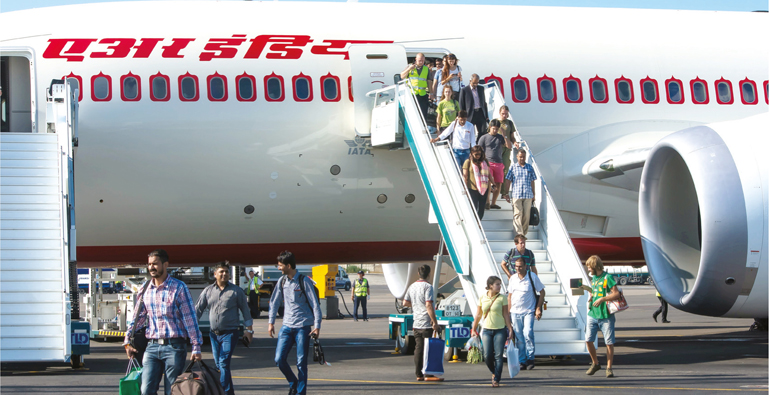
MUSCAT: India’s Ambassador to Oman, Indra Mani Pandey, has warned Indians travelling to the Sultanate to be 100 per cent sure about the job they have been offered before boarding the plane.
The envoy said his department would gladly check, vet and corroborate offers of employment and living conditions arranged by employers in Oman before any Indian national flies here for work.
A young Indian woman, who believed she was coming to Oman to work as a receptionist, was put to work as a housemaid in Salalah, prompting the embassy to issue this warning.
She had travelled, unwittingly, on forged documents and middlemen had kept her passport.
“Those who wish to seek opportunities for employment abroad have to follow the official process and refrain from travelling abroad on any kind of visa other than an employment visa,” Pandey said.
“The system is aimed at protecting the rights of Indians working abroad, including female domestic workers, ensuring their wages, working and living conditions,” the ambassador said, appealing to Indian nationals to follow the right process under e-Migrate system.
“They should ensure that their contract clearly specifies their wages as well as working conditions,” the ambassador said, adding that the embassy is ready to provide any information required by Indian nationals who want to come to Oman on employment visas including verification, if required, of the working conditions promised by their employers.
After the intervention of embassy officials and social workers, the 22-year-old woman from the south Indian state of Kerala was repatriated back on Tuesday.
Talking to the Times of Oman, the Indian woman, who is also a graduate degree holder, was offered a receptionist’s job in Oman and was brought on a tourist visa.
“I was given an offer letter and I was told that I would be employed as a receptionist in a company. I paid INR100,000 (approximately OMR577) for the visa and air ticket back in India to the agents. As nobody was there to guide me, I trusted them. They betrayed me,” she said.
“When I landed here, they took me to Salalah to work as maid in a house there,” the woman revealed.
“I was shocked when I realised that I had been duped. However, the employer was kind enough to send me back. But the middlemen were demanding money. I have assured them that my mother will pay them,” the Indian woman added.
Documents provided by the woman reveal that she came on a tourist visa to Oman on May 24, which was later converted to a housemaid visa.
Shameer PTK, a Muscat-based Indian social worker, said he suspects this to be a clear case of human trafficking.
“She was brought here on a tourist visa. Seems, back in India also, somebody has played a dubious game in this regard,” Shameer said.
“Recently also, we had come across a case where an Indian housemaid was brought to Oman without following the norms. Recruitment agencies have their own dubious ways. At times, the housemaids find themselves stranded without any proper protection as they had not come through the legal channels,” Shameer added.
According to Indian immigration rules, Indian women under 30-year-old cannot migrate as a housemaid.
The government had also recently implemented an e-Migrate system aimed at safe migration.
Whoever wishes to hire an Indian has to apply through the e-Migrate system, which will be verified at various levels to ensure safety. According to the Indian ambassador, the system is devised to facilitate employment of those Indian nationals who require emigration clearance.
Recently, the Indian embassy had also requested Omani authorities to ask for a no-objection certificate (NOC) from those who have plans to hire domestic workers, such as maids and nannies from India.
The request was made to ensure safe migration and recruitment practices.
In 2011, the Indian government had introduced changes in the service agreements of housemaids being brought from India to Oman.
The changes were aimed at protecting the housemaids from abuse and provide skilled manpower to Omani households.